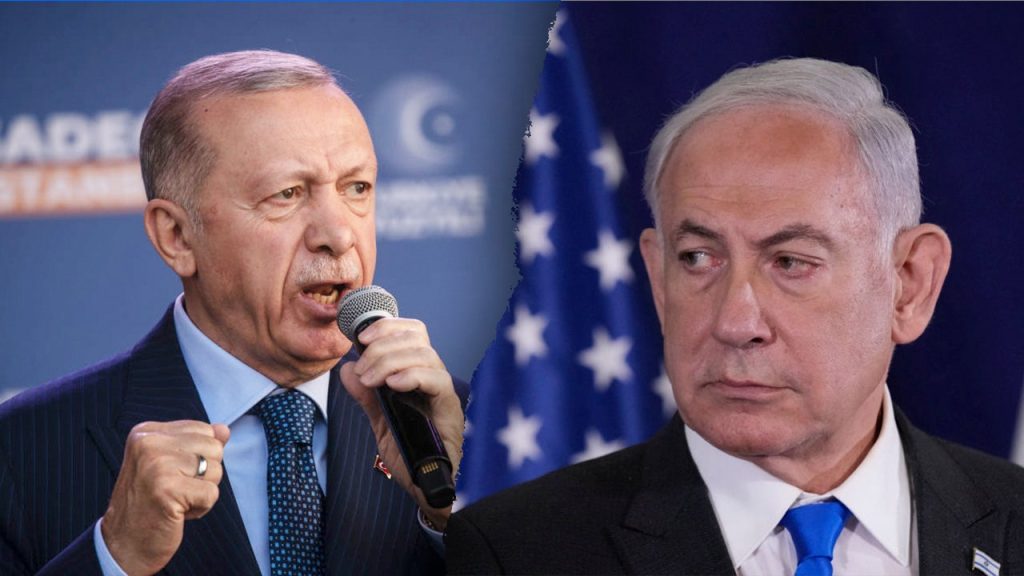In a meeting with his Justice and Development Party, Turkish President Recep Tayyip Erdoğan threatened military intervention in Israel to stop the ongoing conflict in Gaza. He stated that Turkey must be strong to prevent Israel from carrying out actions against Palestine. Erdoğan referenced Turkey’s military involvement in Karabakh and Libya as potential precedents for intervention in Israel. In response, Israeli Foreign Minister Israel Katz warned Erdoğan of a similar fate to Saddam Hussein, who was executed in 2006. The escalating rhetoric between Turkey and Israel comes amid increased aggression from Iran-backed terrorist groups in the region.
The threats made by Erdoğan have raised concerns about potential military intervention by Turkey in Israel. The United States, the Turkish Embassy in Washington, D.C., and NATO have not yet publicly commented on the situation. Tensions between the NATO nation and Israel, a key ally in the Middle East, have been exacerbated by the ongoing conflict with Hamas, Hezbollah, and other terrorist groups supported by Iran. Erdoğan’s criticism of the war in Gaza and his reference to possible military action have added to the volatile situation in the region.
Erdoğan’s allusion to Turkey’s military involvement in Libya and other conflicts suggests that he may be considering a similar intervention in Israel. The Turkish president has been a vocal critic of Israel’s actions in Gaza and has called for stronger measures to be taken. The reference to Turkey’s military operations in Nagorno-Karabakh and Libya indicates a willingness to use military force in defense of perceived allies or interests. The lack of specific details about potential intervention in Israel has left the situation uncertain and open to interpretation.
The ongoing conflict between Turkey and Israel has been characterized by a series of harsh exchanges and comparisons between leaders. Erdoğan and Israeli Prime Minister Benjamin Netanyahu have both used inflammatory language, comparing each other to historical dictators and accusing each other of war crimes. The history of animosity between the two countries, rooted in long-standing conflicts and geopolitical tensions, has contributed to the current state of hostility. The threat of military intervention by Turkey has further fueled the ongoing dispute and raised concerns about the potential for escalation in the region.
The Israeli Prime Minister has not publicly responded to Erdoğan’s threats of military intervention, but the two leaders have a history of exchanging harsh rhetoric. The comparison to Adolf Hitler and other inflammatory remarks reflect the deep-seated animosity between Turkey and Israel. The ongoing conflict in Gaza, coupled with increasing aggression from Iran-backed terrorist groups, has heightened tensions and prompted concerns about the possibility of further escalation. The lack of diplomatic resolution and the potential for military action raise significant concerns about the stability and security of the region.
In conclusion, the threats of military intervention by Turkey in Israel have escalated tensions in the region and raised concerns about the potential for further conflict. The inflammatory rhetoric between Turkish President Recep Tayyip Erdoğan and Israeli Prime Minister Benjamin Netanyahu reflects the deep-seated animosity between the two countries. The ongoing conflict with Iran-backed terrorist groups in Gaza and the broader Middle East adds to the volatile situation. The lack of clear communication and diplomatic efforts to defuse tensions leave the situation uncertain and open to interpretation. The potential for military intervention by Turkey in Israel highlights the need for international diplomacy and cooperation to prevent further escalation and address the root causes of conflict in the region.













